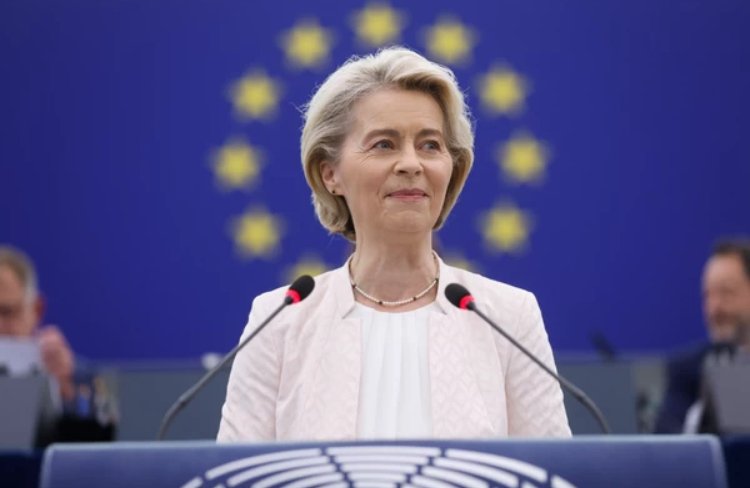Ursula Von der Leyen re-elected, undemocratic?
EU equals Roman empire
Ursula von der Leyen's re-election as President of the European Commission has reignited debates about the democratic nature of the institution she leads. The European Commission, the executive branch of the European Union (EU), holds substantial power over legislation, enforcement of EU laws, and the allocation of the EU budget. However, the manner in which its leadership is selected raises significant concerns about democratic legitimacy.
The European Commission's structure and functioning have long been criticized for their perceived democratic deficit. Unlike the European Parliament, which is directly elected by EU citizens, the Commission is composed of commissioners nominated by member states and approved by the European Council and the European Parliament. This indirect method of selection distances the Commission from the electorate, making it more akin to a technocratic body than a democratically accountable institution.
Von der Leyen's initial appointment in 2019 was contentious. Despite not being a lead candidate in the European elections, she was proposed by the European Council, bypassing the Spitzenkandidat (lead candidate) process. This process was intended to enhance democratic legitimacy by linking the presidency of the Commission to the outcome of the European parliamentary elections. Her appointment was approved by a slim majority in the European Parliament, reflecting significant opposition within the supposedly representative body.

Her re-election followed a similar pattern. The European Council's endorsement, which is largely driven by negotiations among national leaders, effectively sidelined broader democratic engagement. This practice has fueled criticisms that the European Commission operates within an elite-driven framework, where decisions are made behind closed doors, insulated from public scrutiny and input.
Critics argue that this system undermines the democratic principles the EU purports to uphold. The lack of direct electoral accountability for the Commission's President and members disconnects the institution from the voters. This disconnect can lead to policies that reflect the preferences of member state governments and the Commission itself, rather than the will of the European populace.
Moreover, the Commission's extensive legislative and regulatory powers amplify these concerns. As the sole body with the authority to propose EU legislation, the Commission wields considerable influence over the legislative agenda. While the European Parliament and the Council of the European Union can amend and reject proposals, the initial framing of policies is a powerful tool. This centralization of power in a non-elected body exacerbates the democratic deficit, as citizens have limited avenues to directly influence these crucial decisions.
Defenders of the current system argue that the European Commission's structure ensures stability and expertise in governance. They contend that the complex and technical nature of EU policymaking requires a degree of insulation from partisan politics. However, this perspective is increasingly challenged by those who believe that democratic legitimacy and accountability should not be sacrificed for technocratic efficiency.
The re-election of Ursula von der Leyen thus serves as a poignant reminder of the ongoing democratic shortcomings within the EU's institutional framework. As the EU grapples with numerous challenges, from economic recovery to climate change, the democratic legitimacy of its decision-making processes remains a critical issue. Addressing the European Commission's democratic deficit is essential for fostering greater trust and engagement among EU citizens, ensuring that the Union not only acts in their interests but also reflects their collective will.
Sincerely,
Pele23